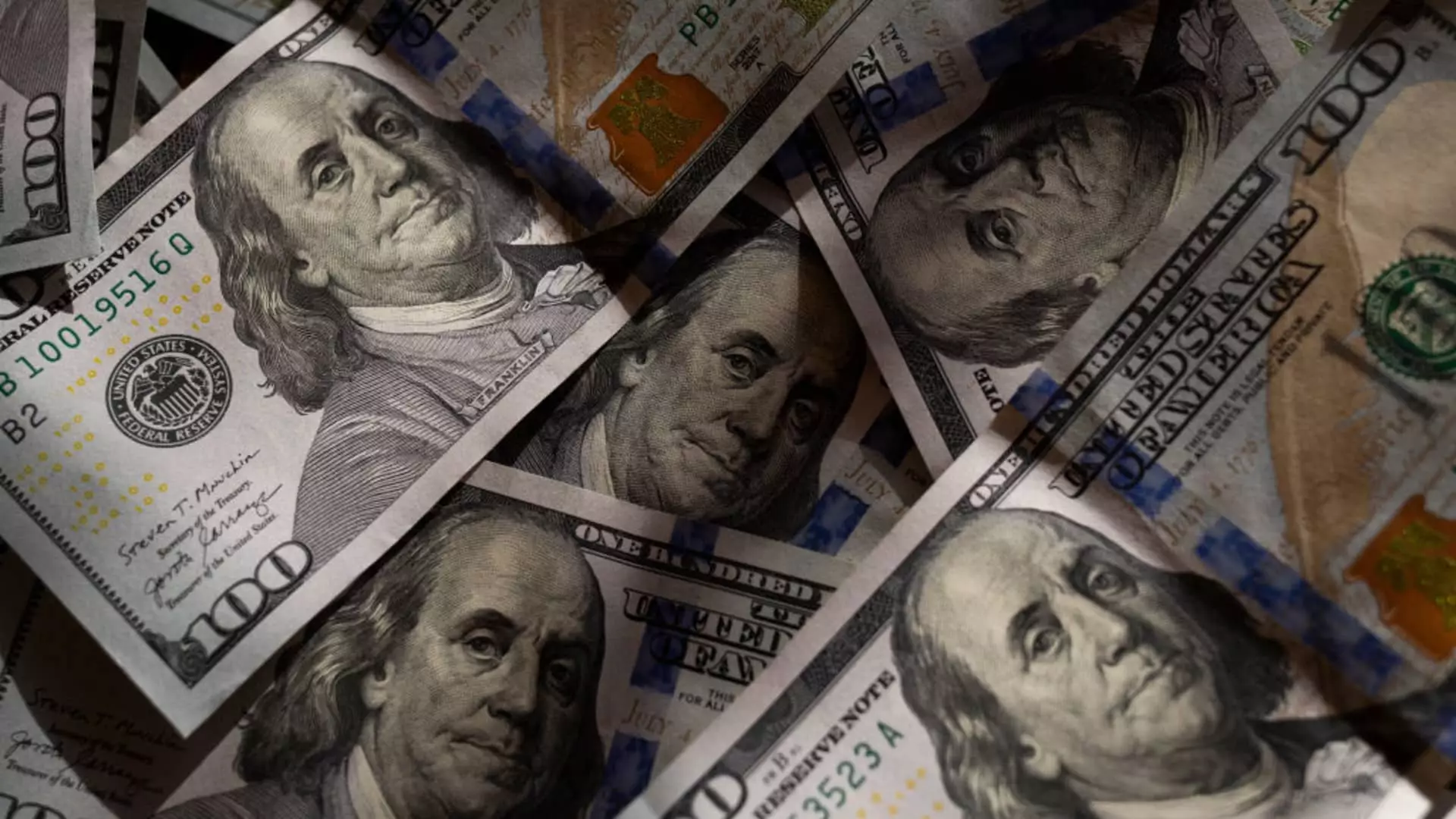As the U.S. dollar continues its downward spiral, a stark realization emerges: the weakening greenback may induce a prolonged period of instability across global markets. Emerging from the shadows of its once-imposing strength, the dollar has dropped over 9% this year, with predictions suggesting that the decline could go deeper. The ramifications are significant—they echo around the world, heralding a mix of relief and trepidation among central banks. The exodus from U.S. assets speaks volumes about waning confidence in the U.S. economy, echoing the sentiment captured in Bank of America’s Global Fund Manager Survey, which revealed that an unprecedented 61% of participants expect further depreciation.
Such a consensus is not simply a reflection of pessimism; it is a clarion call for countries to reevaluate their positions in an increasingly precarious economic landscape. The dollar’s slide signifies a potential crisis of confidence, and as it erodes, inflation may surge in nations reliant on dollar-denominated imports. This threatens the delicate balance which central banks strive to maintain.
The Safe Havens: A Sanctuary or a Trap?
In stark contrast to the dollar’s downfall, a variety of safe-haven currencies, notably the Japanese yen, Swiss franc, and euro, have recently appreciated significantly. The yen has gained over 10% against the dollar this year alone, while the Swiss franc and euro have witnessed similar rises. While this surge may provide a momentary sense of relief, it simultaneously poses a conundrum. The soaring value of these currencies can undermine export competitiveness, especially as industries in Asia face renewed tariffs from the U.S. market. This situation presents a discordant dilemma: strong local currencies may quell inflation through cheaper imports but can simultaneously stifle exporters, hindering growth.
Emerging markets find themselves on a precarious tightrope. The strengthening of currencies like the Mexican peso and Canadian dollar against the U.S. dollar offers a glimmer of hope, yet countries such as Vietnam and Indonesia see their currencies hitting unprecedented lows. The delicate balance of managing these dynamics while still fostering growth and maintaining competitiveness is an ongoing battle for policymaking authorities, making the climate for economic growth far from ideal.
A Breathing Space or a Hidden Trap?
For many central banks, the decline of the U.S. dollar offers a welcome moment of relief. As Adam Button, a currency analyst, observes, a fall of 10%-20% is often celebrated—not merely as good fortune, but as a necessary adjustment allowing for monetary policy flexibility. In theory, a weaker dollar can alleviate the real burden of dollar-denominated debt, enabling central banks to lower rates and bolster growth. Yet herein lies the paradox: the same currency depreciation that grants breathing space can also endanger long-term economic stability.
The role of emerging economies becomes particularly salient in this turbulent environment. The headwinds they face, including looming inflation, exchange rate volatility, and the specter of capital flight, create a tenuous balance wherein any policy misstep could yield catastrophic results. Central banks, especially in regions where dollar-denominated debt is prevalent, tread lightly. A reduction in rates may offer momentary relief but risks destabilizing households and businesses that have borrowed in U.S. dollars.
The Fragile Global Economy: A Geopolitical Game of Chicken
The specter of geopolitical tensions further exacerbates this delicate situation. Trade negotiations, while seemingly a pathway to stability, are fraught with potential pitfalls. With the U.S. administration’s focus on tariffs, countries find themselves caught in a cyclical predicament—balancing the need for competitiveness in global markets against the potential backlash from “currency manipulation” accusations. Navigating these treacherous waters requires finesse, as one miscalculated devaluation can ignite a currency war, adding yet another layer of uncertainty to an already complex economic reality.
Central banks find themselves at a crossroads. While theoretically equipped to counteract a strengthening local currency through devaluation, the associated risks must not be understated. The influences of currency reserves, foreign debt exposure, and inflationary pressures weigh heavily on policymakers’ decisions—a conflux that may compel nations to adopt a more conservative approach.
The Fragility of Consensus: Avoiding a Currency War
In the current landscape, avoiding a currency war appears to be the prevailing wisdom among global leaders. As they tread carefully around the possible repercussions of their actions, the vulnerability of the global economic framework becomes painfully apparent. Emerging markets confront significant challenges, and navigating the complexities of currency devaluation, inflationary pressures, and international trade demands expert caution.
As countries tentatively engage in negotiations to alleviate tariffs and bolster trades, they inch toward a fragile consensus—one that seeks not only to survive the current upheaval but also to challenge the existing paradigms governing international trade and financial stability. With the stakes so high, one must wonder: can this fragile collaboration endure the pressures of a volatile economic landscape, or will the specter of a currency war beckon them down a more destructive path?


Leave a Reply